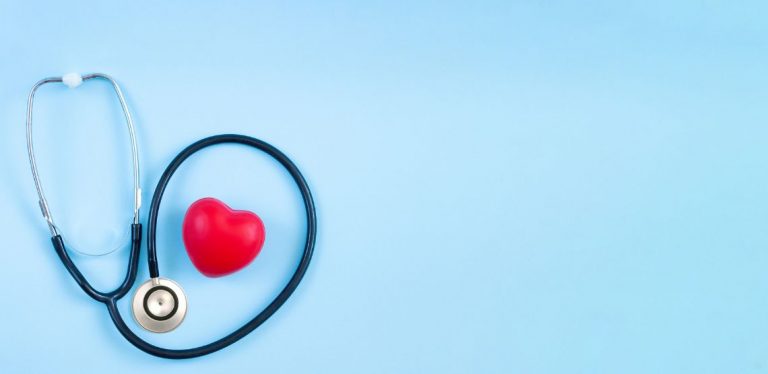What Are the Best Foods to Eat With AFib?
More people experience atrial fibrillation (AFib) worldwide than any other known heart arrhythmia. Learning what you can do to help control AFib episodes is an essential part of managing the condition.
Your lifestyle choices play a substantial role in whether you’re able to live well with AFib. Making wise decisions such as engaging in regular exercise and eating (and drinking) healthy, as well as taking your medications regularly, will help you limit some of the triggers associated with AFib.
Although there is no standard dietary template for AFib, there are certain foods you will want to ensure you are consistently eating, and some that you will want to avoid or consume on a limited basis. For the most part, following heart-healthy dietary guidelines, like the recommendations from the American Heart Association, will help you make wise choices.
Foods to Eat With AFib
The following are foods that help with AFib which you will want to include in your AFib diet plan:
Fresh and frozen fruits contain vital nutrients like antioxidants that your body needs. They are a great way to get a little "sweet" in your meal and are an excellent replacement for high sugar, high-fat desserts.
Fresh and frozen vegetables have essential vitamins and minerals that promote normal physiologic function.
Whole grains like brown rice, oats, barley, millet, and products made from them such as whole grain bread and cereals will help provide your body with fuel, and help with healthy digestion.
Proteins like lean beef and pork, chicken, turkey, fatty fish, eggs, legumes, nuts, and seeds build strong muscles and aid in brain function.
Healthy fats and oils such as avocados, olives, and olive oil, canola, peanut, safflower, and sesame oil help maintain healthy brain and nerve function.
Dairy products like milk, yogurt, and cheese provide calcium to build and preserve strong bones.
Drink water and un-caffeinated tea or coffee as your primary beverages.
Following Serving Sizes
The American Heart Association recommends following these serving sizes every day for each nutritional category:
- Fruits: 2 cups
- Vegetables: 2.5 cups
- Whole grains: 3 to 6 ounces
- Proteins: 5.5 ounces
- Fish: a minimum of two servings per week
- Healthy fats and oils: 3 teaspoons
- Low-fat dairy products: 3 cups
If you have other chronic conditions that call for specific nutritional restrictions, such as limiting fluid or vitamin K intake, make an appointment with a registered dietitian to find out the exact guidelines that you need to follow.
Related Search Topics (Ads)
Foods Not to Eat With AFib
The foods to avoid with AFib are those that contain high levels of saturated fat, sugar, and sodium. Although these elements themselves will not cause AFib, they do contribute to increased risk factors linked to AFib such as high blood pressure, obesity, diabetes, and obstructive sleep apnea.
If you have AFib, you will want to limit your consumption of the following foods, or just cut them out of your usual eating pattern:
Canned, packaged, and processed foods often contain high levels of sodium, white refined sugar, and white refined flour. They can also contain artificial flavors, colors, and other preservatives that are difficult for our bodies to use.
Fatty cuts of beef, pork, and wild game contain high levels of cholesterol, which can contribute to coronary artery disease.
Trans fats are the most dangerous form of fat. These types of fats are in margarine and foods made with partially hydrogenated vegetable oils like potato chips, doughnuts, cookies, and crackers.
Typical fast foods like burgers and fries are high in saturated fat and salt. Pizza has excessive amounts of white refined flour, salt, and saturated fat.
Popular beverages such as sports drinks, sparkling water, seltzer’s and fruit juices all have high levels of sugar that can cause elevated blood glucose levels and weight gain.
Regular coffee and tea, soda, and energy drinks all contain caffeine, which can act as an AFib trigger. Chocolate also contains caffeine, so if you are a chocolate lover go easy on your consumption.
Alcohol is a significant AFib trigger when consumed in excess. The current guidelines recommend no more than one drink per day for women and two per day for men.
Grapefruit is one of the presumably healthy foods that you will need to avoid. Grapefruit contains a naturally occurring chemical that can counteract the effects of antiarrhythmic medications.
Final Notes
Making dietary changes with AFib is often challenging. Visit with your physician to learn how to make smart choices to begin reducing your AFib risk.
Registered dietitians are well-versed in nutritional guidelines for AFib. Ask your physician to set up a referral so you can learn specifics about making the best choices for your condition.
Having AFib doesn’t mean that you must give up all your favorite foods. If you focus on eating healthy as often as possible, you can still have a small portion of one of your “guilty pleasures” as a treat!
Article Resources
- Circulation (Modifiable Risk Factors and Atrial Fibrillation)
- Harvard Health (Avoiding Atrial Fibrillation)
- Heart.org (Healthy Living)
- Heart.org (Prevention Strategies for Atrial Fibrillation)
- Healthgrades.com (7 Do’s and Don’ts with For Atrial Fibrillation)
- Healthline (Foods to avoid with Atrial Fibrillation)
- Mayo Clinic (Should I Make Changes to My Diet If I’ve Been Diagnosed with Atrial Fibrillation?)
- WebMD (What Not to Eat When You have Atrial Fibrillation)

